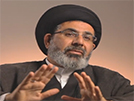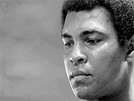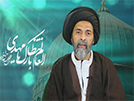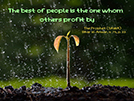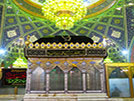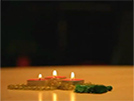The Father of Chemistry
- Details
- Hits: 8237
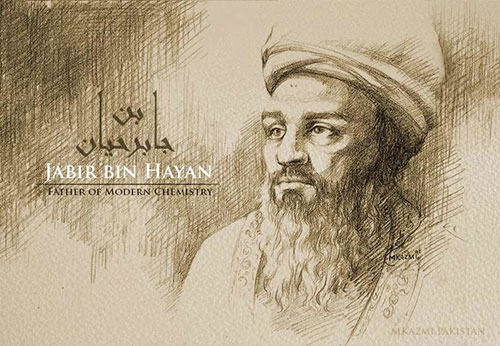
Jabir Ibn Haiyan, the alchemist Geber of the middle Ages, is generally known as the father of chemistry. Abu Musa Jabir Ibn Hayyan, sometimes called al-Harrani and al-Sufi, was the son of the druggist (Attar). The precise date of his birth is the subject of some discussion, but it is established that he practiced medicine and alchemy in Kufa around 776 C.E. He was a leading student of Imam Sadiq (A.S). In his early days, he practiced medicine and was under the patronage of the Barmaki Vizir (minister) during the Abbasid Caliphate of Haroon al-Rashid. He shared some of the effects of the downfall of the Barmakis and was placed under house arrest in Kufa, where he died in 803 C.E.
Jabir's major contribution was in the field of chemistry. He introduced experimental investigation into alchemy, which rapidly changed its character into modern chemistry. On the ruins of his well-known laboratory remained after centuries, but his fame rests on over 100 monumental treatises, of which 22 relate to chemistry and alchemy. His contribution of fundamental importance to chemistry includes perfection of scientific techniques such as crystallization, distillation, calcinations, sublimation and evaporation and development of several instruments for the same. The very name chemistry is derived from the Arabic word al-Kimya, which was studied and developed extensively by the Muslim scientists. Perhaps Jabir's major practical achievement was the discovery of mineral and others acids, which he prepared for the first time in his alembic (Anbique).
Apart from several contributions of basic nature to alchemy, involving largely the preparation of new compounds and development of chemical methods, he also developed a number of applied chemical processes, thus becoming a pioneer in the field of applied science. His achievements in this field include preparation of various metals, development of steel, dyeing of cloth, tanning of leather, etc. The alembic is his great invention, which made easy and systematic the process of distillation. Jabir laid great stress on experimentation and accuracy in his work.
Based on their properties, he has described three distinct types of substances. First, spirits i.e. those which vaporize on heating, like camphor and ammonium chloride; secondly, metals, for example, gold, silver, iron and thirdly, the category of compounds which can be converted into powders. He thus paved the way for such later classification as metals, non-metals and volatile substances.
A large number of books are included in his corpus. Apart from chemistry, he also contributed to other sciences such as medicine and astronomy. His books on chemistry, including his Kitab-al-Kimiya, and Kitab al-Sab'een were translated into Latin and various European languages. These translations were popular in Europe for several centuries and have influenced the evolution of modern chemistry. Several technical terms devised by Jabir, such as alkali, are today found in various European languages and have become part of scientific vocabulary.
Doubts have been expressed as to whether all the voluminous work included in the corpus is his own contribution or it contains later commentaries/additions by his followers. According to Sarton, the true worth of his work would only be known when all his books have been edited and published. His various breakthroughs e.g., preparation of acids for the first time, notably nitric, hydrochloric, citric and tartaric acids, and emphasis on systematic experimentation are outstanding and it is on the basis of such work that he can justly be regarded as the father of modern chemistry. In the words of Max Mayerhoff, the development of chemistry in Europe can be traced directly to Jabir Ibn Haiyan.
Source: shia studies articles

